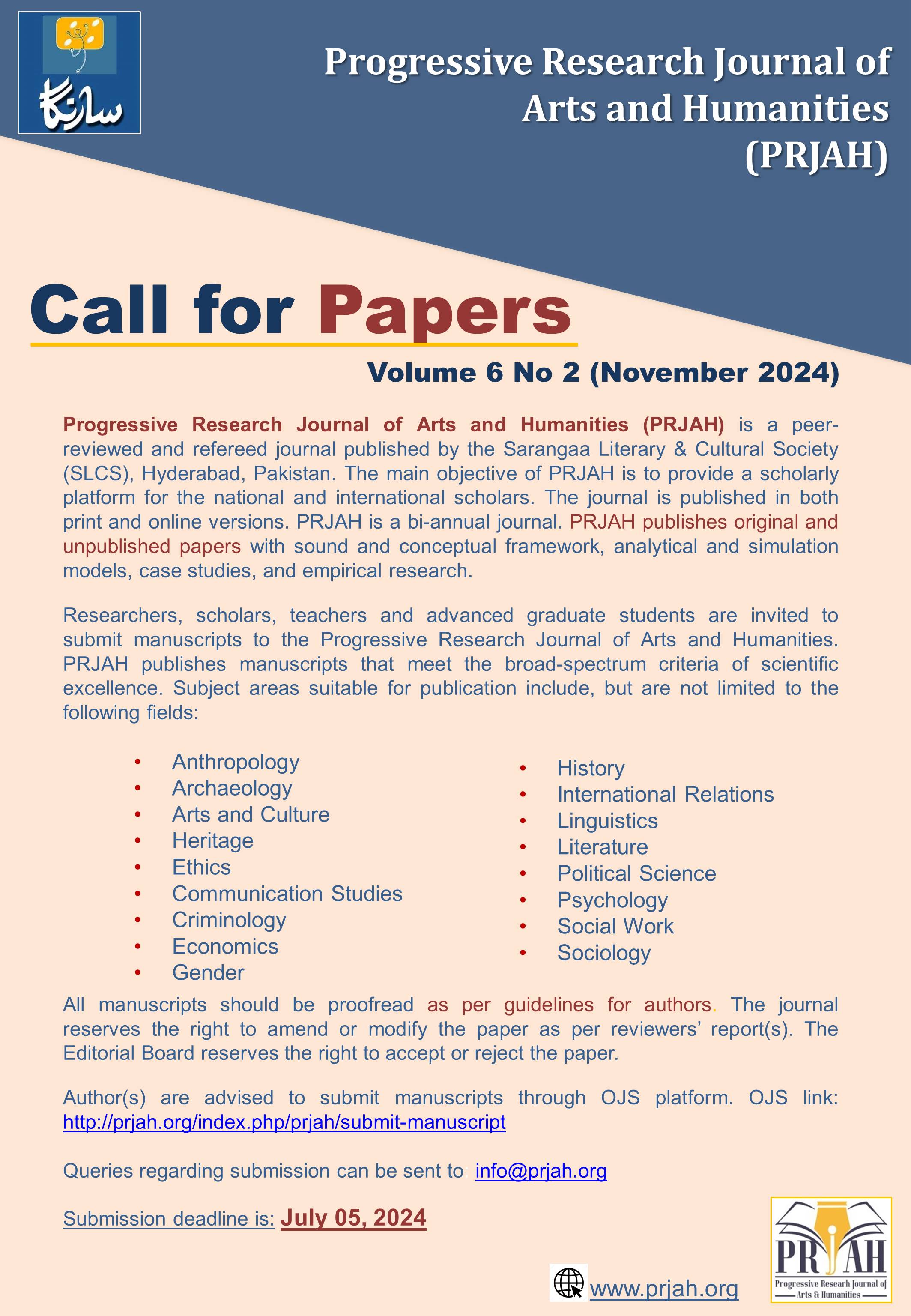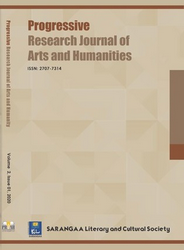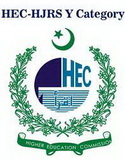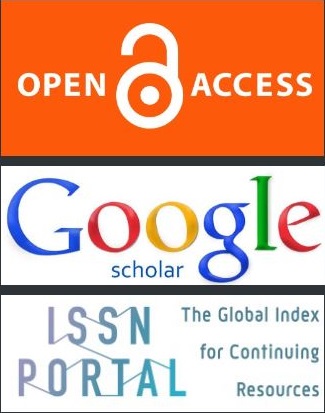Impact of Head Teachers’ Democratic Leadership Style on Teachers’ Performance at Public Secondary Schools
DOI:
https://doi.org/10.51872/prjah.vol5.Iss2.304Keywords:
Head Teacher; Teacher; Leadership; Democratic Leadership Style; Teachers’ Performance.Abstract
This paper generally aims to examine the impact of head teachers` Democratic leadership styles on teachers` performance at the public secondary schools. Leadership is a perilous and central problem for all administrations and institutions round the world. Many nations in the world have attempted to highlight and emphasize the perception of effective headship in a variety of ways in their organizations regular events, programs, and presentations. In Pakistan, there is a rapid and growing awareness of leadership in a various sectors and fields, in tandem with a sharp increase in the number of teachers, universities, colleges, and schools, as well as others involved directly or indirectly in the educational domain. The study specifically aims to investigate the impact of Head teachers` Democratic leadership styles on Teachers` Performance at public secondary schools and to examine the difference between Head teachers` Democratic leadership styles and Teachers` Performance at public secondary schools. This research applied descriptive survey design having quantitative approach. The Likert scale five-point was used as a tool to collect the response from representative of the group of interest of the researcher. It revealed that the head teachers` Democratic leadership styles have positive impact on teachers` performance and there is also a strong correlation between the variables.
References
Abdul Hameed Lone. (2009). Teachers Perceptions of Quality and Quality Management Systems at Higher Education level in Pakistan: A Case Study of, Karakoram International University (KIU) Gilgit Baltistan (Doctoral dissertation, Islamia University, Bahawalpur.).
Ahmed Iqbal, Z., Abid, G., Arshad, M., Ashfaq, F., Athar, M. A., & Hassan, Q. (2021). Impact of authoritative and laissez-faire leadership on thriving at work: The moderating role of conscientiousness. European Journal of
Investigation in Health, Psychology and Education, 11(3), 667–685. https://doi.org/10.3390/ejihpe11030048
Banasiak, M. A., & Karezmarzyk, M. A. (2018). Teacher as leader and manager: competences of modern educator. Journal of Psycho- Educational Sciences, 7(3), 32–37.
Bevins, D. T. (2018). Herzberg’s Two Factor Theory of Motivation: A Generational Study. Encompass, 1–47.
Chukwusa, J. (2019). Autocratic leadership style: Obstacle to success in academic libraries. Library Philosophy and Practice, 1.
Creswell, J. W. (2008). Educational research: Planing, conducting, and evaluating quantitative and qualitative research (3rd ed.). New Jersey 07458 USA: Pearson Prentice Hall.
Dolly C, K., & Nonyelum P., O. (2018). Impact of Democratic Leadership Style on Job Performance of Subordinates in Academic Libraries in Port Harcourt, Rivers State, Nigeria. International Journal of Research - GRANTHAALAYAH, 6(10), 232–239. https://doi.org/10.29121/granthaalayah.v6.i10.2018.1190
Dyczkowska, J., & Dyczkowski, T. (2018). Democratic or Autocratic Leadership Style? Participative Management and its Links to rewarding Strategies and Job Satisfaction in SMEs. Athens Journal of Business & Economics, 4(2), 193–218. https://doi.org/10.30958/ajbe.4.2.5
Eugenia Yeh. (2013). General Managerial Skills and External Communication. Analisis Pendapatan Dan Tingkat Kesejahteraan Rumah Tangga Petani, 53(9), 1689–1699.
Ibrahim, A., & Al-Taneiji, S. (2012). Principal leadership style, school performance, and principal effectiveness in Dubai schools. International Journal of Research Studies in Education, 2(1), 41–54. https://doi.org/10.5861/ijrse.2012.86
Jay, A. (2014). The Prinicipals’ Leadership Style and Teachers Performance in Secondary Schools of Gambella Regional State. 1–97.
Katz, R. L. (1955). Skills of an effective administrator People: Managing Your Most Important Asset. Harvard Business Review.
Khosrow, M. (2014). Best Practices and Conceptual Innovations in Information Resources Management: In Paper Knowledge . Toward a Media History of Documents.
Kshirsagar, S. B., & Ramgade, D. A. (2021). Impact of Transformational Leadership Styles of Principals on Job Satisfaction. JAHR 18(1), 5185–5197.
L.R Gay. (2012). Educational Research (Tenth Edit). Pearson Boston Columbus Indianapolis New York.
Laghari, M. A., Siddiqui, A., & Khowaja, Z. K. (2020). E-16 Classroom Management in the Perspective of Teacher’s Preparedness. Al-Aijaz Research Journal of Islamic Studies & Humanities, 4(1), 171–181. https://doi.org/10.53575/e16.v4.01.171-181
Downloads
Published
How to Cite
Issue
Section
License
Copyright (c) 2024 Progressive Research Journal of Arts & Humanities (PRJAH)

This work is licensed under a Creative Commons Attribution 4.0 International License.







